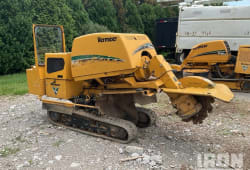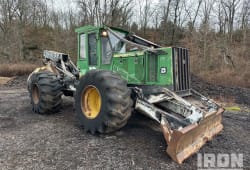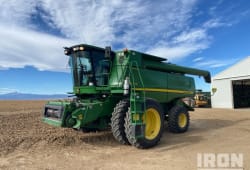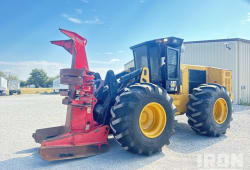Log Splitters: A Comprehensive Exploration of Types, Maintenance, and Safety
5 Lectura mínima
)
abril 1, 2024
Log splitters are powerful machines designed to split logs into smaller pieces for firewood or other purposes. Whether you're a professional lumberjack or a homeowner with a fireplace, having the right log splitter can make your woodcutting tasks much easier and more efficient.
Types of Log Splitters
Log splitters come in various types to suit different needs and preferences.
Manual Log Splitters
Manual log splitters are operated by hand, using hydraulic or mechanical force to split logs. They are typically more affordable and portable than other types but require physical effort to operate.
Electric Log Splitters
Electric log splitters are powered by electricity and are suitable for smaller-scale splitting tasks. They are quieter and easier to maintain than gas-powered splitters but may have less splitting force.
Gas-Powered Log Splitters
Gas-powered log splitters are usually more powerful and suitable for heavy-duty splitting jobs. They offer greater mobility and can handle larger logs but require regular refueling and maintenance.
Factors to Consider When Buying a Log Splitter
When choosing a log splitter, there are several factors to keep in mind to ensure you get the right one for your needs.
Power Source
Consider whether you prefer a manual, electric, or gas-powered log splitter based on your budget, intended use, and availability of power sources.
Splitting Force
The splitting force of a log splitter determines its ability to handle different types and sizes of logs. Choose a splitter with sufficient force to tackle your typical woodcutting tasks effectively.
Portability and Mobility
If you need to move your log splitter around frequently, opt for a portable model with wheels or a compact design for easier transportation.
Log Size and Type
Make sure the log splitter you choose can accommodate the size and type of logs you typically work with. Some splitters are better suited for hardwoods, while others may excel with softer woods.
Top Brands in the Log Splitter Industry
Several reputable brands manufacture high-quality log splitters, each with its unique features and advantages.
Boss Industrial
Boss Industrial offers a range of reliable log splitters known for their durability and performance. Their models are designed for both residential and commercial use, with varying splitting forces to suit different needs.
Champion Power Equipment
Champion Power Equipment is another well-known brand in the log splitter industry, offering a wide selection of electric and gas-powered models. Their splitters are praised for their efficiency, ease of use, and value for money.
WEN
WEN specializes in affordable yet reliable log splitters suitable for home use. Their electric models are popular among homeowners for their quiet operation and ease of maintenance.
Maintenance Tips for Log Splitters
Proper maintenance is essential to ensure your log splitter remains in good working condition for years to come.
Regular Cleaning and Lubrication
Clean your log splitter regularly to remove dirt, debris, and sap buildup that can affect performance. Lubricate moving parts as needed to prevent rust and ensure smooth operation.
Inspecting for Wear and Tear
Periodically inspect your log splitter for signs of wear and tear, such as damaged blades or leaking hydraulic fluid. Replace any worn or damaged parts promptly to prevent further damage.
Storage and Protection
Store your log splitter in a dry, sheltered area when not in use to protect it from the elements. Cover it with a tarp or use a dedicated storage shed to prevent rust and corrosion.
:format(webp))
Benefits of Using Log Splitters
Using a log splitter offers several advantages over traditional woodcutting methods.
Time and Energy Savings
A log splitter can significantly reduce the time and effort required to split logs manually, allowing you to complete woodcutting tasks more efficiently.
Upcycling Old Machinery
Repurpose old machinery or equipment to create a unique and functional log splitter that fits your budget and resources. Salvage components from discarded appliances or vehicles to build a one-of-a-kind machine.
Conclusion
Log splitters are invaluable tools for anyone who needs to split wood regularly. By choosing the right type of log splitter and following proper maintenance and safety procedures, you can enjoy the convenience and efficiency of wood splitting while minimizing environmental impact.
FAQs about Log Splitters
Q: How do I choose the right log splitter for my needs?
A: Consider factors such as power source, splitting force, portability, and log size/type when selecting a log splitter.
Q: Are electric log splitters suitable for heavy-duty use?
A: Electric log splitters are best suited for smaller-scale splitting tasks, while gas-powered models are more appropriate for heavy-duty use.
Q: How often should I perform maintenance on my log splitter?
A: Regular maintenance, including cleaning, lubrication, and blade sharpening, should be performed according to the manufacturer's recommendations.
Q: What safety precautions should I take when using a log splitter?
A: Always wear proper safety gear, follow operating instructions, keep hands and feet clear of moving parts, and supervise children and pets.
Q: Can I use a log splitter to split other materials besides wood?
A: While log splitters are designed specifically for splitting wood, some models may be capable of splitting other materials such as plastic or metal with modifications and proper safety precautions.

Mike Kennedy is Boom & Bucket's Marketplace Operations Manager, where he leads shipping, warranties, and post-sale operations to create a seamless buyer experience. As one of the company's earliest team members, Mike helped build the foundation of Boom & Bucket's operations and guided its growth through acquisition by RB Global. He is passionate about scaling marketplaces, solving operational challenges, and improving efficiency to deliver industry-leading results.














